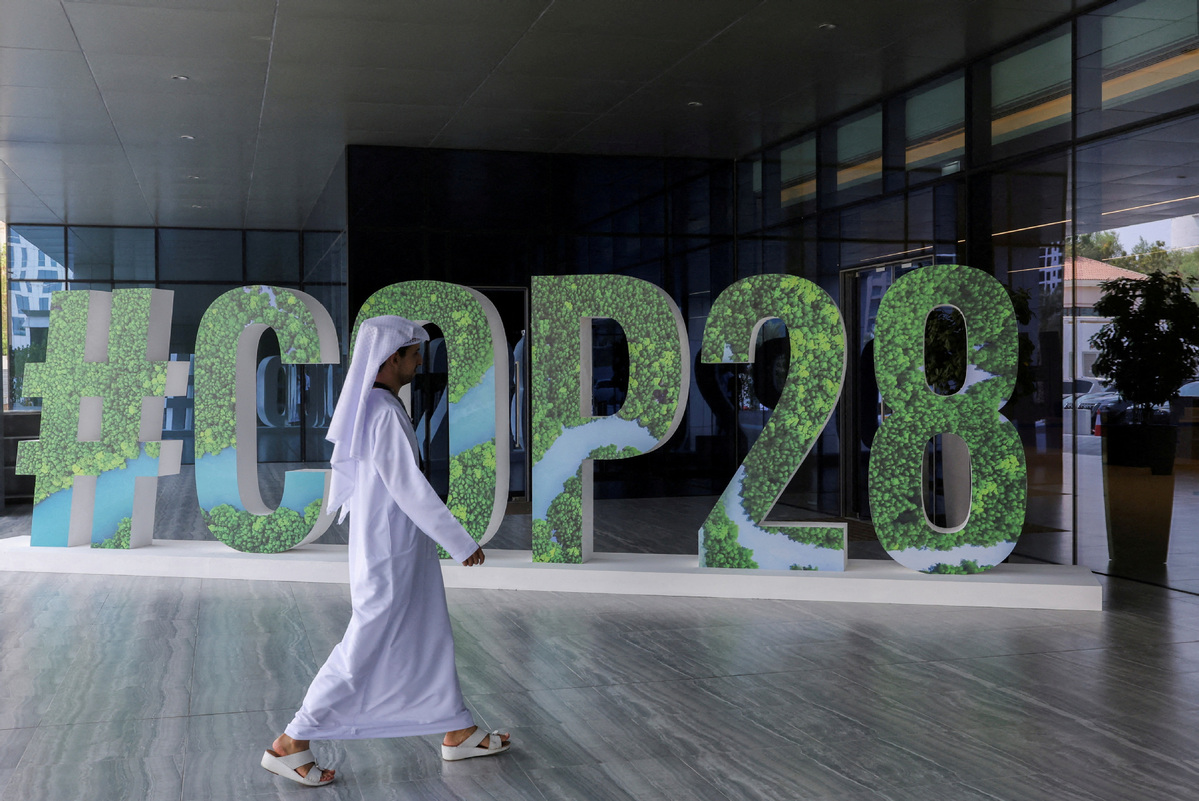Global mechanism urged to bolster climate ties


A senior environmental expert has called for establishing an international mechanism to track the compliance of developed nations' financial commitments to the Global South, as poorly materialized pledges are jeopardizing the trust seriously needed in the global climate process.
He said a similar mechanism is also needed at the national level, as that will help countries draw a clear picture about existing financial gaps in meeting their climate targets, based on which global funders can make contributions.
Carlos Manuel Rodriguez, CEO of the Global Environment Facility, made the remarks in an exclusive interview with China Daily in the run-up to the 28th Conference of the Parties to the United Nations Framework Convention on Climate Change, or COP28, which is scheduled to start on Thursday.
That developed nations should honor their long-standing pledge to mobilize $100 billion per year by 2020 to help poor countries cope with climate change has been a topic for years at the annual UN climate gathering.
"Expert groups are telling us that we're far from the $100 billion (target)," Rodriguez said. Only around $83 billion has been mobilized so far, he said, quoting a recent assessment report, adding that this figure might not be in line with the actual situation.
Established in 1991, the Global Environment Facility is one of the world's most influential funders of environmental projects. Its grants, blended financing and policy support help developing countries address their biggest environmental priorities and adhere to international environmental conventions.
According to Rodriguez, his funding organization contributes about $1 billion, and roughly $3 billion comes from the Green Climate Fund. "So where is this $83 billion? You put everything there, and a lot of everything is not directly linked to the Paris Agreement (on climate change)," he said.
Noting that this is an "underlying element" that has jeopardized the trust between developed countries and developing nations, he said, "So how are we going to agree on a new 2025 financial target if there is no trust?"
At COP26, which was held in Glasgow, Scotland, in 2021, developed nations were urged to double the collective provision of climate adaptation finance from the 2019 level by 2025. But "very little is happening", Rodriguez said.
He said the introduction of a global mechanism that tracks the compliance may help address the problems. "I think that it is not until we establish a reliable, transparent global mechanism of reporting that things will change."
As a former negotiator of Costa Rica in UN climate negotiations, Rodriguez said he proposed such a mechanism "quite a few times", but received no proactive response from the Global North. "That's the position I continue to see.... That is an element that really continues to limit progress."
He said that a tracking mechanism also doesn't exist in any of the 144 countries where his funding organization currently has projects. "I think that we need a decision, so countries should be reporting how much they are investing from all sources."
This is important because it helps countries to have an idea of the gap and then work out a plan to narrow that gap, he said, adding that his funding organization can then invest in what these countries have defined in their plans.
Rodriguez, Costa Rica's former minister of environment and energy, also shared some practices in his country that have helped make its power sector completely clean and renewable in the past decade.
While many countries have separate ministries for energy and environment, Costa Rica merged the two and established the Ministry of Environment and Energy in 1986.
The same year, about 40 percent of electricity in the Central American nation was generated using renewables. The proportion has stayed at 100 percent each year in the past decade, except for 2022, which registered 99 percent, he said.
"The lesson is you need to create an institutional framework that helps, because there are a lot of conflicts within environment and energy at the national level," he said.
Rodriguez emphasized efforts to mobilize domestic resources as another key factor for the success of Costa Rica's energy transition.
The country invested $9.3 billion in renewables, particularly in nontraditional types.
Costa Rica understood that it is in its own interest to go the renewable way, while many other developing countries said they are not going to invest in energy transition unless they get financial support from outside as part of the $100 billion pledged by developed countries, he said.




































